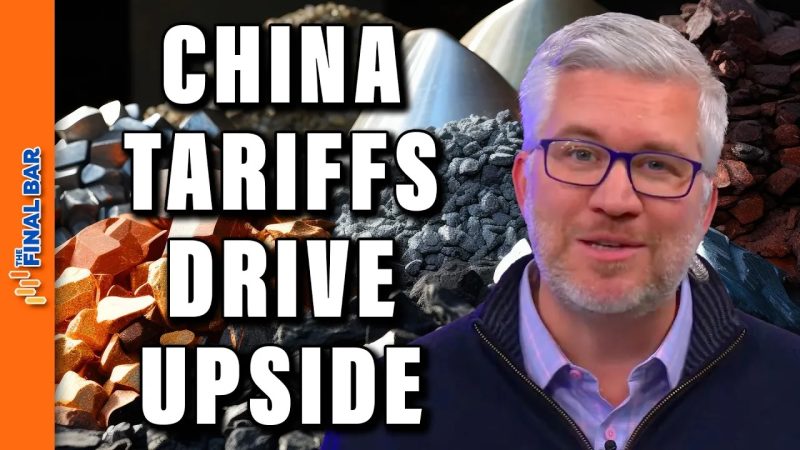China’s Dominance in Rare Earth Minerals: Implications of Tariffs and Global Supply Chain Dynamics
Rare earth minerals play a pivotal role in various industries, from electronics and clean energy to military applications. China has long been a dominant player in the global rare earth minerals market, controlling a significant portion of the world’s reserves and production capacity. The recent imposition of tariffs by China on rare earth minerals has sparked concerns and uncertainties in the global supply chain dynamics.
Impact of China’s Tariffs on Rare Earth Minerals
China’s decision to impose tariffs on rare earth minerals has significant implications for industries heavily reliant on these critical materials. With China being the largest producer of rare earth minerals, the tariffs could potentially drive up prices, disrupt supply chains, and create uncertainties in the market. As a result, companies that depend on rare earth minerals may face higher production costs and supply chain disruptions, leading to potential market volatility and challenges in meeting consumer demand.
Diversification of Supply Chain
The imposition of tariffs by China on rare earth minerals underscores the importance of diversifying the global supply chain for these critical materials. As the world’s reliance on rare earth minerals continues to grow, securing a stable and diversified supply chain is essential to mitigate risks associated with geopolitical tensions and market fluctuations. Companies are now exploring alternative sources and strategies to reduce their dependence on China and ensure a steady supply of rare earth minerals for their operations.
Potential Opportunities for Other Producers
While the tariffs imposed by China may pose challenges for industries dependent on rare earth minerals, they also present opportunities for other producers to expand their market share and capitalize on the growing demand for these critical materials. Countries with significant rare earth mineral reserves, such as Australia, the United States, and Canada, are well-positioned to ramp up production and fill the supply gap created by China’s tariffs. By leveraging their resources and capabilities, these countries can establish themselves as key players in the global rare earth minerals market and reduce dependence on China.
Navigating Geopolitical Uncertainties
The geopolitical tensions surrounding rare earth minerals highlight the need for a strategic approach to navigating uncertainties in the global supply chain. Companies must assess their exposure to risks related to tariffs, trade disputes, and supply chain disruptions, and develop contingency plans to ensure business continuity. Collaborating with government agencies, industry partners, and stakeholders can help mitigate risks and enhance the resilience of the supply chain against external shocks.
In conclusion, the imposition of tariffs by China on rare earth minerals is reshaping the dynamics of the global supply chain for these critical materials. While challenges may arise for industries heavily reliant on rare earth minerals, there are also opportunities for diversification, expansion, and strategic collaboration to strengthen the resilience of the supply chain. By proactively managing risks and exploring alternative sources, companies can navigate the uncertainties associated with geopolitical tensions and ensure a stable supply of rare earth minerals for future growth and innovation.

